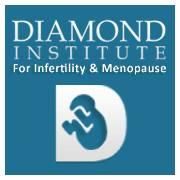4 Ways to Improve Your Fertility

Trying to get pregnant with your partner should be an exciting time that boosts your intimacy. However, if getting pregnant is taking more time than you would like, you are not alone—and it doesn't necessarily mean you or your partner is infertile. Before visiting a fertility clinic, there are several lifestyle changes you can make to increase the chances of pregnancy. Try to incorporate the following advice into your daily routine.
How to Increase Fertility
1. Reduce Your Stress
Stress can take a toll on your emotional, mental, and physical health, including fertility. It not only makes you disinterested in sex, but it can also affect ovulation since there is a link between the stress hormone cortisol and disrupted brain-ovary connections. Because infertility issues often exacerbate stress, find ways to stay calm and focus on things that make you happy.
Exercise reduces stress and anxiety by promoting endorphin production—brain chemicals that create euphoric feelings. Other activities such as reading and spending time with family and friends can be rewarding AND relaxing as well.

2. Maintain a Healthy Weight
Being underweight or overweight interferes with fertility because of the connection between fat cells and ovulation. Too few or too many fat cells interfere with the hormones that regulate ovulation, including estrogen and progesterone. If you are unsure what your ideal body weight is, talk to your primary care physician and create a healthy diet plan.
3. Enjoy Antioxidant-Rich Foods
Antioxidants destroy free radicals, or unstable molecules that affect health in many ways. In terms of fertility, they damage egg and sperm cells. Increase your antioxidant intake to help your body combat free radicals. For example, incorporate more folate, which is associated with higher conception rates. Folate-rich foods include legumes, eggs, citrus fruits, and leafy greens.
4. Avoid Alcohol
Alcoholic beverages affect pregnancy hormones, especially if you have five or more drinks in one sitting. Doing so increases the risk of irregular ovulation, which makes getting pregnant more challenging. Drinking during pregnancy is risky as well since it heightens the chances of congenital disabilities, including small head size, low body weight, poor memory, learning disabilities, and hyperactive behavior.
If you still have trouble conceiving, make an appointment with Diamond Institute for Infertility & Menopause in Millburn, NJ. This fertility clinic can help couples through egg donation, IVF treatment, and fertility preservation. They have provided a warm and caring environment for patients for over 50 years. Call (973) 761-5600 today to schedule an appointment, or visit the fertility clinic online for more information.
About the Business
Have a question? Ask the experts!
Send your question

